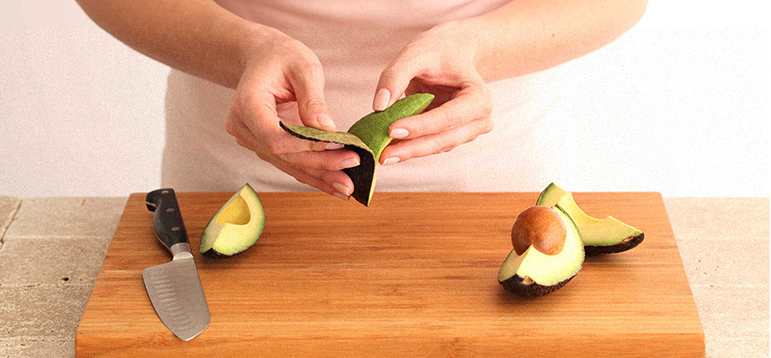
As with all fruits and vegetables, wash avocados before cutting. Check out our tips for how to choose and use California Avocados
- Pick Your Perfect California Avocados
- How to Ripen Avocados
- Handle Avocados with Care
- Cutting Avocados Correctly
- Avocado Storage Techniques
- California Avocado Nutrition
Pick Your Perfect California Avocados
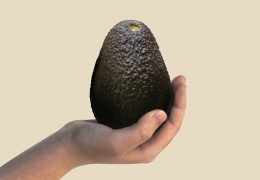
- When selecting an avocado, look for the Fresh California Avocado label, which is your assurance that the fruit was grown in California. Help finding California Avocados
Tip: California Avocados are in season from spring through summer. If you do not see California Avocados in stores during this time frame, let your produce manager know of your preference - The best way to tell if a California Avocado is ripe and ready for immediate use is to gently squeeze the fruit in the palm of your hand. Ripe, ready-to-eat fruit will be firm but will yield to gentle pressure
- Color alone may not tell the whole story. The Hass Avocado will turn dark green or black as it ripens, but some other avocado varieties retain their light-green skin even when ripe
- If you plan to serve the fruit in a few days, stock up on hard, unripe fruit and review our section on how to ripen avocados
- Avoid fruit with dark blemishes on the skin or oversoft fruit
How to Ripen Avocados
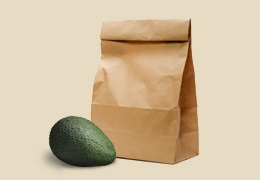
- To speed up the process of ripening avocados, place the fruit in a paper bag and store it at room temperature (65 F to 75 F) until ready to eat (usually two to five days)
- Including an apple or a kiwi fruit in the bag accelerates the process, because these fruits give off ethylene, a natural hormone that promotes ripening. When the avocados yield to gentle pressure, they are ready
Tip: The more apples or kiwi fruit you add, the quicker your avocados will ripen. Soft, ripe fruit can be refrigerated until it is eaten and should last for at least two more days. Refrigerate only ripe or soft avocados - The California Avocado Commission does not recommend using a microwave to accelerate the ripening process
- View our Definitive Guide to Ripening an Avocado for more information
Handle Avocados with Care
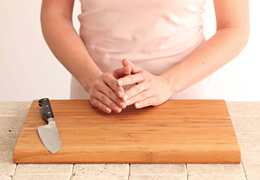
As with any food preparation, begin by washing your hands in hot, soapy water and drying them with a clean towel. To avoid cross-contamination from raw meat, poultry or eggs, always disinfect your cutting surfaces and utensils. Always thoroughly wash and then dry the fruit before you slice it.
Cutting Avocados Correctly

Use this simple process when cutting avocados:
- Start with a ripe avocado on a cutting board and cut it lengthwise around the seed. We recommend cutting into the avocado until the knife hits the seed, then rotating the avocado with one hand while holding the knife horizontally in the other hand
- Turn the avocado by a quarter and cut it in half lengthwise again
- Rotate the avocado halves in your hands and separate the quarters
- Remove the seed by pulling it out gently with your fingertips
Tip: Using this cutting method eliminates the other common seed-extraction method (striking the seed with a knife and twisting), which requires some skill and is not recommended - Peel the fruit by sliding your thumb under the skin and peeling it back
Learn more about the nutritional benefits of peeling an avocado.
Tip: If you are not using the avocado immediately, sprinkle all cut surfaces with lemon juice, lime juice or white vinegar and cover them with plastic wrap against the surface of the avocado to prevent discoloration.
Avocado Storage Techniques
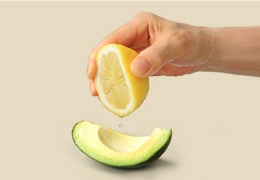
Ripe avocados can be stored in the refrigerator uncut for two or three days.
To store cut fruit, sprinkle it with lemon juice, lime juice or white vinegar, wrap tightly it in plastic wrap or place it in an airtight container, and then refrigerate it. This will prevent it from discoloring.
California Avocado Nutrition
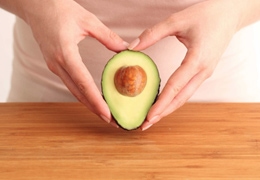
Learning how to cut and peel a California Avocado not only allows you to make the most of this delicious fruit, but it can also help you get the nutritional benefits of the dark-green fruit closest to the peel, where the greatest concentration of beneficial carotenoids is. Learn more about California Avocado nutrition, including using avocados as a fat replacement in baking and as a first food for babies.
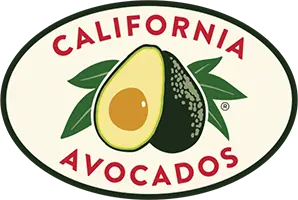
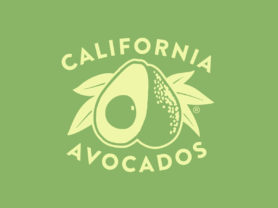
Comments